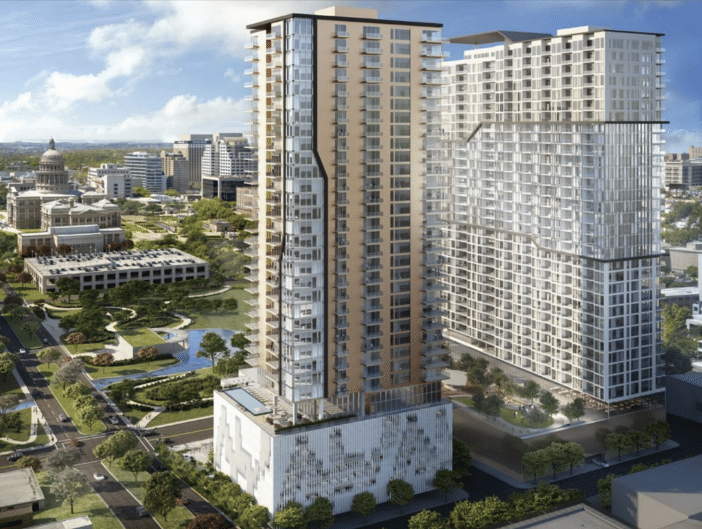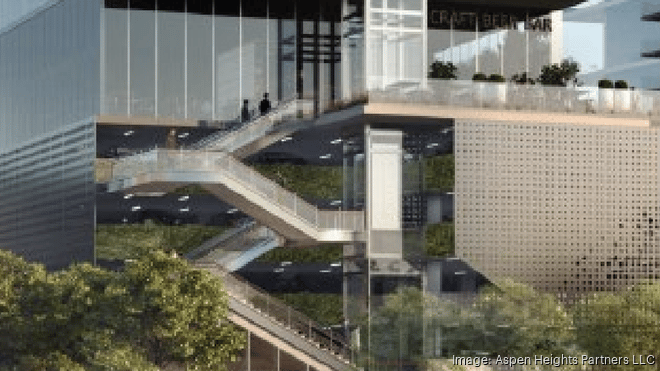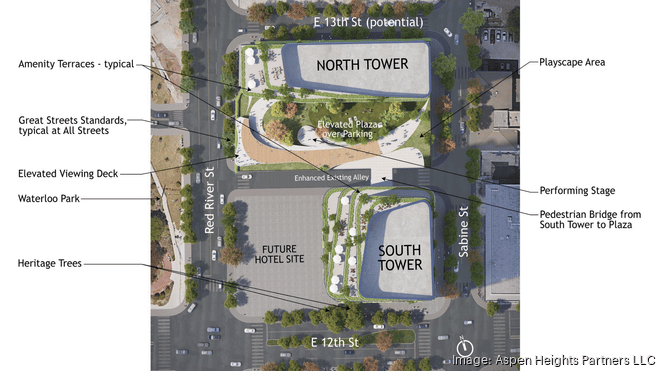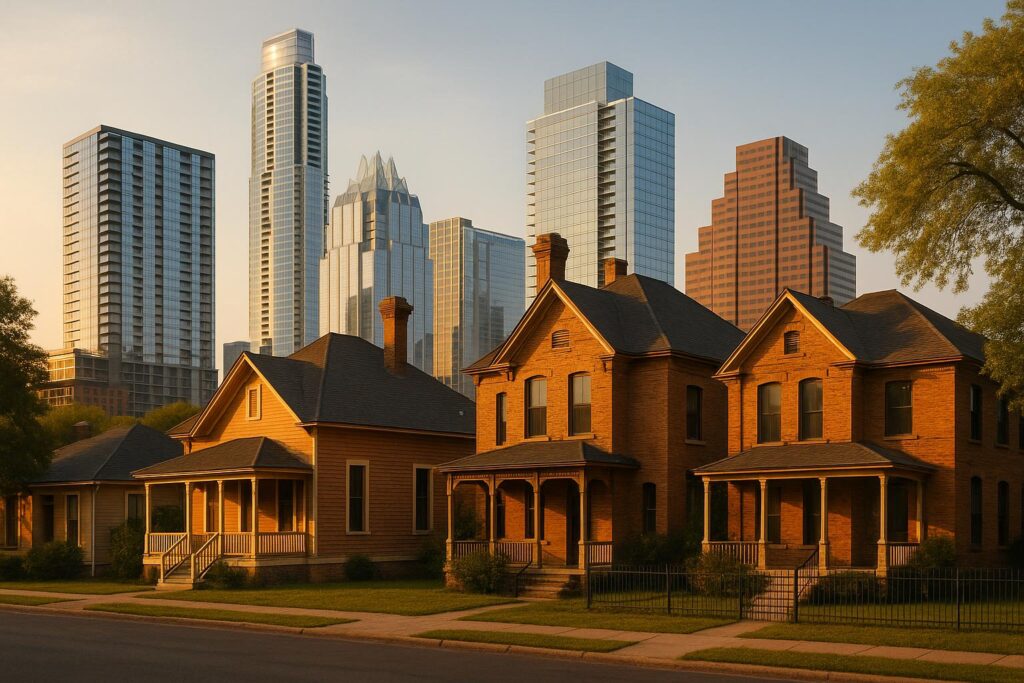Aspen Heights Partners has gained the approval of Austin’s Downtown Commission to move forward with their plans to redevelop the former HealthSouth rehabilitation hospital, located on city-owned land adjacent to Waterloo Park. The commission’s unanimous approval of the initial design plans during its Feb. 15 meeting marks a small step towards bringing more housing, a significant portion of which will be affordable, to the Central Business District. The redevelopment project proposes building two 37-story residential towers at 1215 Red River St. and 606 E. 12th St.
The project has been in the works for some time, and plans are circulating among public commissions as Aspen Heights negotiates a master development agreement with City Hall. The agreement is expected to be voted on by City Council in late spring or early summer.
The redevelopment project has 921 apartments planned across both towers, with 25% of the units set to be leased at affordable rates and remaining as such for 99 years instead of the city’s standard 40 years. Of the 232 affordable units, 117 will be for those earning 50% or less of the city’s median family income level, while 115 will be leased to those making 60% MFI or less. It is worth noting that the median family income for a three-person household in Travis County is $99,250, according to the Housing and Planning Department.
Margaret Shaw, economic redevelopment program manager with the city of Austin, said the affordable units had been locked in at 2022 rates. She further noted that the site is a prime location for residential towers and other community amenities that are accessible to residents.
“This site is very exciting and in a very exciting location,” Shaw said. “I think we have set these spaces up for as much success as we can in a market that we know is only seeming to get more popular.”
Aspen Heights has said the community benefits of the towers are valued at about $50 million, including an on-site childcare center designed to accommodate 75 children. The affordable housing component is a significant factor in the development project and indicates Austin’s continued efforts to tackle the city’s affordable housing crisis.
Although commissioners Amy Mok and Jen Weaver shared concerns about the capacity of the child care facility and some aspects of the project’s design, the commission approved the design plans with no resistance from board members. The project’s approval by the Downtown Commission followed a late January vote in support of the project from the city’s Design Commission.
As the development project moves forward, the towers will stand as a hallmark of public-private partnerships in Austin. The project offers families the opportunity to live downtown and have access to childcare facilities while also providing them with the convenience of walking to work.
“A remarkable project like this is what makes me proud to be a part of the Austin real estate community,” says Austin Archuleta of Austin Local Team. “It’s a true hallmark of what public-private partnerships can achieve. I wish it would be completed sooner, but I’m glad to see everyone’s hard work come to fruition.”
The Aspen Heights development project’s approval is a significant win for Austin as it seeks to continue to address its ongoing affordable housing crisis. The project’s focus on affordable housing, in particular, will make a difference in the lives of many residents. It also highlights the increasing number of public-private partnerships emerging in the city and the willingness of local real estate developers to work collaboratively with city officials and residents to create solutions that are both sustainable and equitable.







